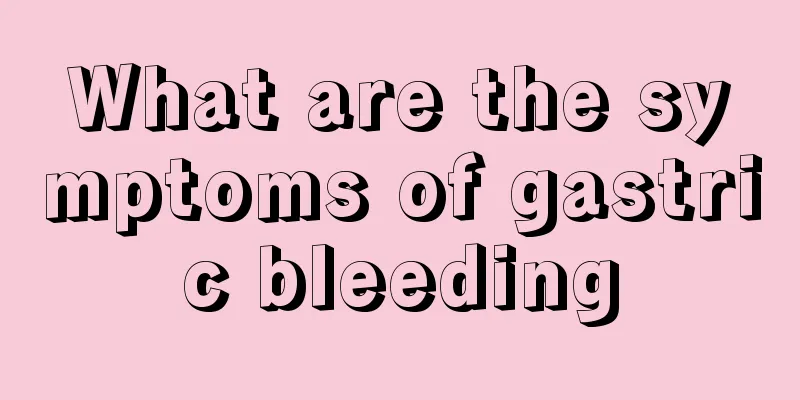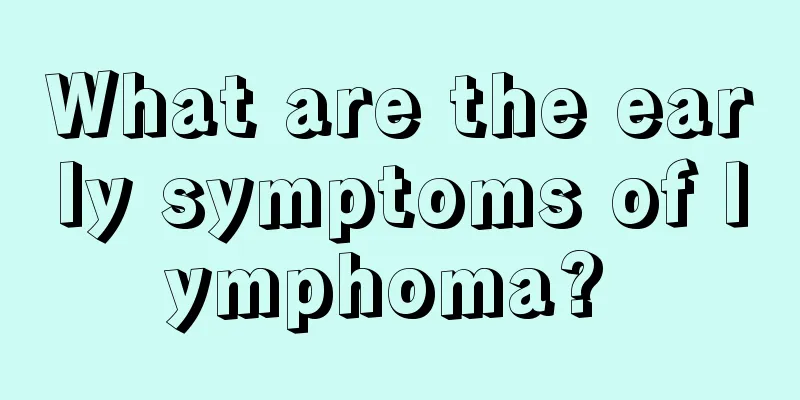What are the symptoms of gastric bleeding

|
Gastric bleeding is what people often call gastrointestinal bleeding. It is a relatively serious emergency. The symptoms of gastric bleeding are multifaceted. Severe patients have heavy bleeding and are accompanied by fever. Ignoring the treatment of gastric bleeding can easily worsen or even be life-threatening. 1. Azotemia If gastric bleeding occurs, azotemia may occur. 2. Fever In cases of moderate or massive bleeding, fever occurs within 24 hours, mostly below 38.5 degrees, and lasts for several days to a week. 3. Vomiting blood and/or black stools It is a characteristic manifestation of upper gastrointestinal bleeding. Patients with bleeding above the pylorus often experience vomiting blood and black stools, while patients with bleeding below the pylorus may only experience black stools. However, lesions above the pylorus with a small amount of bleeding and a slow bleeding rate may only cause black stools, while lesions below the pylorus with a large amount of bleeding and a fast bleeding rate may cause vomiting of blood due to the reflux of blood into the stomach. 4. Anemia and blood picture changes After acute massive hemorrhage, there will be hemorrhagic anemia. In the early stage of bleeding, there may be no obvious changes in hemoglobin concentration, red blood cell count and hematocrit. Generally, it takes more than 3 to 4 hours for anemia to appear. After 2 to 5 hours of massive upper gastrointestinal bleeding, the white blood cell count may increase significantly, and will return to normal 2 to 3 days after the bleeding stops. However, in patients with cirrhosis and hypersplenism, the white blood cell count may not increase. 5. Hemorrhagic peripheral circulatory failure Bleeding within 400ml may be asymptomatic, while moderate bleeding may cause anemia or progressive anemia, dizziness, weakness, and sudden standing up may cause syncope, thirst, cold limbs, and low blood pressure. Massive bleeding reaching 30% to 50% of the total blood volume can cause shock, which is manifested as irritability or confusion, pale complexion, cold and clammy limbs, cyanosis of the lips, difficulty breathing, blood pressure dropping to unmeasurable levels, decreased pulse pressure difference, and a rapid and weak pulse. If not handled properly, it can lead to death. |
<<: What to do if you have a big nose?
>>: Why do I feel my heart beating so fast?
Recommend
Can late stage colorectal cancer be cured with folk remedies?
We are not very familiar with colorectal cancer. ...
What are the dangers of colorectal cancer
The hazards of colorectal cancer include energy d...
Uses of paraffin
Speaking of paraffin, I believe many of my friend...
What kind of honey is best to drink in summer
Drinking honey in summer can achieve anti-fatigue...
How to deal with bone metastasis of prostate cancer
Prostate cancer is a common malignant tumor disea...
What is the chance of a daughter inheriting colon cancer?
Most cancers are not inherited, but about 10%-15%...
Can Houttuynia cordata be eaten and what are its effects
Our male friends may have less exposure to Houttu...
What are the benefits of using a hot towel on your face? It turns out there are these 8 benefits
Many people like to use hot towels to apply to th...
Can I still get orthodontics at the age of 27
Some people want to improve their teeth through o...
What is the best treatment for laryngeal cancer
What is the best treatment for laryngeal cancer? ...
Is it useful to use ginger to wash hair if you have less hair?
Ginger has been used for various purposes a long ...
Lung wheezing
Wheezing in the lungs is a symptom of asthma. Whe...
When is the best time to drink fresh milk
We all know that the nutritional value of milk is...
What to do if your lips blister after lip bleaching
Some people report that they develop blisters aft...
Early symptoms of lung cancer
Symptoms of early lung cancer include persistent ...









